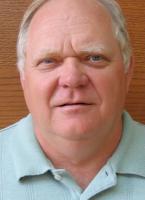Managerial Leadership Practices: Unions and requisite organization
Speaker A The whole idea is that nothing representative does will ever supersede the collective agreements. Whatever the collective agreements are, those are negotiated. They have a time horizon, whet...
Transcript of the presentation video
NOTE: This transcript of the video was created by AI to enable Google's crawlers to search the video content. It may be expected to be only 96% accurate.
Speaker A The whole idea is that nothing representative does will ever supersede the collective agreements. Whatever the collective agreements are, those are negotiated. They have a time horizon, whether it's one, two, three years, but you can still implement requisite. What requisite does is provide clarity. If you change a role, you may have to use whatever process there is to get a new evaluation or a new compensation rate for that. But changing the role, doing that should not be a hindrance. Because if you're changing roles, you're doing it because you're either consolidating so that a person can do more within a role or you're being more definitive, but you follow whatever the negotiation process is. We found that involvement with union, letting them know what we're doing, what the expected outcomes are, that if you're progressive, you can identify that there's no risk or risk mitigation to the particular unit. The fear of anytime you say we're an organizational design process, that automatically someone's going to lose that job. There may be some outcomes where people are doing different work. What you have to do is identify that you're willing to retrain people. So you're taking existing people with skills and all that you're willing to retrain. And if work does eventually fall off the food chain, then you'll take whatever the appropriate action is within the collective agreement. Just deal with that type of stuff. So it's not simple. In other words, it's not just say, trust me, build a relationship with the there has to be some sort of I realize by definition most people believe it's adversary, but again, the union usually are there to make sure that their workers get all the rights entitled to them. That's the normal philosophical. Then they try and get everything that's entitled to them outside the collector, for instance. Second phase of the union. But what they're entitled to is what's negotiated. So to answer your question, if we can do reckless work, we can managerial practices. Normally most managers aren't unionized. Normally some are. Where I'm from there was a management union. So even the first level of management was unionized. But you still define the work, what is the work, what is the expectation, and then treat people appropriately from a compensation system within the realm of so is it going to be a requisite fair pay system? Probably not. Because you'd have to have a holistic approach to compensation. You have to be able to start from the ground up to do that. But even in that where I left the turn of the century. In 2000, we went from a collective agreement that had 41 different pay bands for level one work. So what we call level one work, which would be all your operations, maintenance, clerical planning, that type of work, probably covering 10,000 person organization, 6000 unionized folks. We went from 41 different paid scales to one pay scale with three bands. And that was negotiated because it was a broad band and the amazing thing was, I was there as a manager negotiating with them, and I wasn't there trying to get it as a three band. It just naturally worked. It started with eight, then six, then four, and three is what we came to an agreement on. So whether you like it or know, elliot's preaching about the natural order, what seems right seemed to work. I can take credit again said, Why you? Because of my records and knowledge. But it just happened. That's where it seemed to fit right for level one work. So we actually have band at that time, band 1112 and 13, low level one, mid level one, high level one work. And you can work in any of those jobs in those bands. That's how you get paid. So I think with any union, it's a relationship. If you have an adversarial relationship, no matter what you do, it's going to be difficult. But if you can be as open as possible and show what the results are going to be, and then clarity and trust applies, it's a true cross functional working relationship with no authority. That's really what you have. If you have no authority other than negotiation time. So does that answer any of your concerns? There's not a how to. There more than experience. Says, build a relationship. Keep it open. Let them know what they're doing, what you're going to do, what the outcomes are, how you're going to treat members. They're your employees. They're the union members. Sometimes unions get confused. They feel that they're employees. They're not employees. They're your employees, company employees. They're members of you, so you still have some rights. You ram.
Major organizations and consulting firms that provide Requisite Organization-based services





